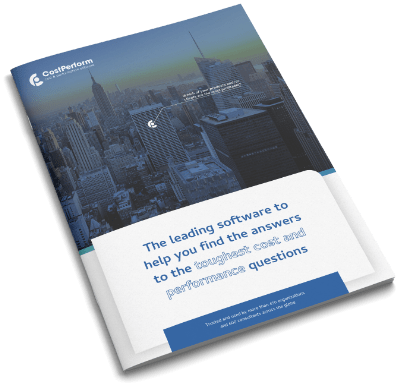In its most simple form, cost allocation means you allocate costs to various parts of your business. This provides insight into costs objects and which costs are associated with these objects, based on specific criteria. Cost allocations are commonly used to assign (overhead) costs to produced goods. These are then either used in your financial statements or in your (internal) management reports. You can use your cost allocations to optimize your profit or your (internal) processes.
Which costs ánd which criteria are relevant to you, differs from business to business and the market in which you operate. In a previous blog, you can read more about types of costing and costing methods.
Financial accounting and cost allocations
Financial accounting is used to determine and present the financial health and position of your business. These financial reports are made annually (and/or monthly) and are, for example, the basis for your tax payments. Having the right cost allocations helps you to optimize your profit and therefore the level of tax you’ll have to pay within the laws and regulations regarding your specific situation. The way you decide on what cost should be allocated to different areas of your business, guided by a allocated cost definiton, can therefore have a significant influence on your financial reports.
Most of the accounting or other regulatory rules are very strict on the way you use cost allocations as well as your ability to be transparent on your allocations. A good cost allocation method and tooling can help you achieve this transparency and thus stay compliant with the accounting rules that apply to the market in which you operate. Many external auditors have been impressed by the level of transparency CostPerform can provide.
Transfer prices
A special case of dealing with cost with an enterprise organisation is worth shedding some separate light on: transfer prices. Transfer pricing is the method used to sell a product from one subsidiary to another within one business. This is a commonly used method when parent companies manage their subsidiaries as separate profit centers. Determining the right transfer prices can be quite tedious. Statements like “at arms length” or “market prices” should be proven and calculated. Being able to thoroughly oversee different scenarios can be a large money and time saver.
Cost allocations for management accounting
Where financial accounting is used to represent the correct financial situation of the company, management accounting aims to optimize internal processes and daily operations. Cost allocation within management accounting usually tends to follow the business process as much as possible. Searching for the cause of the cost becomes more important than the exact representation of the financial situation. “What is the cause and effect relation between my products and my cost?” becomes the dominant question. Searching for drops or spikes will become the goal. Because these kinds of reports are usually for internal use only, there’s no need to be compliant with GAAP.
Many companies use these management accounting reports to identify room for improvement with regard to the internal (production) processes.
Cost allocation software suited for your goals
Good cost allocation software can help you create the insights and reports you need, whether it’s to get the auditors approval or to find room for improvements in your daily operations. A proper way to allocate your costs gives you a clear picture of:
- spikes and drops in costs;
- the financial state of your business;
- opportunities for improvement for optimization of profit or process.
CostPerforms cost allocation software is as we like to call it: fit for purpose. It provides you with the building blocks to assemble the cost allocation software of your dreams. Use it to understand important metrics, simulate different scenarios, create cause-and-effect relationships or create reports for your auditor.
